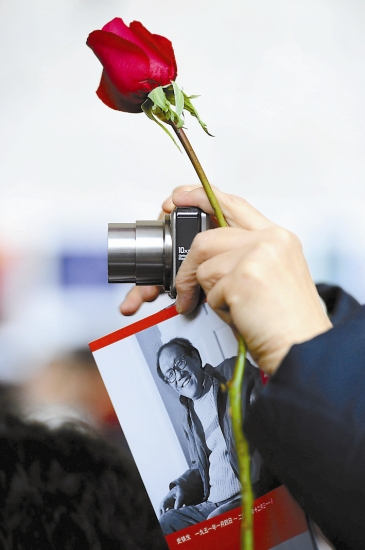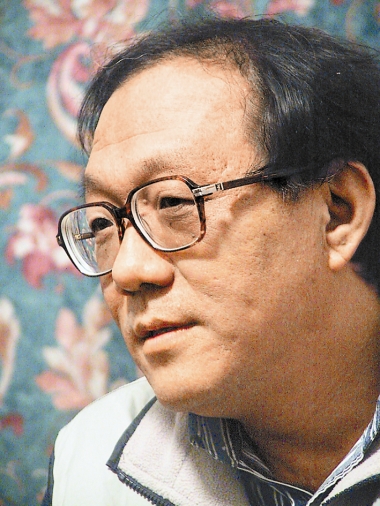|


Helen Deng
“THRER is no need to rush toward death. Death is something you won’t miss, a holiday that will come sooner or later.” So wrote Shi Tiesheng in his well-known essay “The Temple of Earth and I,” published in 1991.
Twenty years later, the holiday came for Shi. The disabled writer passed away Dec. 31, 2010, at the age of 59. He died of a cerebral hemorrhage.
“Shi had a headache and vomited after finishing dialysis at 6 p.m. yesterday. Then he slipped into unconsciousness. He didn’t wake up after being taken to hospital,” said Wang Shenshan, secretary general of the Beijing Writers’ Association, on Saturday.
Shi was plagued by disease for most of his life. He once said: “My profession is illness. My part time job is writing.” With his death, he was finally freed from the wheelchair that he was confined to for 38 years, and from the dialysis treatment that plagued him three times a week following a kidney disease in 1998.
The departure of Shi is a huge loss for Chinese literature. Shi was not a lucrative writer, but his works were the result of long, deep thought, unlike most Chinese writers of his time. Physically constrained and facing the threat of death almost daily, his perception of the world was highly spiritual and his view of life was clearer than the view of most healthy people. This could explain why his works were so influential.
His essay “The Temple of Earth and I” is a sentimental work of prose about his lonely wheeled strolls in the Temple of Earth. The essay is considered by many as one of the best examples of Chinese prose of the 20th century. Commenting on the significance of the essay, well-known Chinese writer Han Shaogong said: “The publication of this essay alone made the year 1991 a good harvest year for Chinese literature.”
Shi was born in Beijing where he spent most of his life, near the Temple of Earth. He graduated from Qinghua University High School. In 1969 he was a zhiqing, or urban youth sent to a rural area of Shaanxi as part of the Down to the Countryside Movement of the Culture Revolution. He was paralyzed there in an accident at the age of 21, and was sent back to Beijing.
It was then that he began his writing career. His first work was published in 1979. His 1983 short story “My Faraway Clear Peaceful River” won the National Excellent Short Story Prize.
A sequel, “A Story of Rustication” was published in 1986. In 1980 director Tian Zhuangzhuang shot a short film called “Our Corner” which was based on a story by Shi; it was the first film by a filmmaker of China’s Fifth Generation Cinema.
His 1985 novella “Like a Banjo String,” about a pair of blind musicians, was the basis of the 1991 film “Life on a String” directed by Chen Kaige.
His collections of short stories include “My Faraway Clear Peaceful River” (1985) and “Sunday” (1988). A collection of English-language translations of his short stories was published in 1991 as “Strings of Life.”
In 1996 his novel “Notes on Principles” was published. In selecting it as a notable work of Chinese literature since 1949, Professor Shelley W. Chan of Wittenberg University said “Notes on Principles” was similar to but better than “Soul Mountain” by Nobel Prize-winner Gao Xingjian.
In 1998, his kidneys began to fail and he subsequently required dialysis three times a week. But even under such adverse conditions, he insisted on continuing to write.
He later received the Lao She Literature Prize for “Fragments Written at the Hiatus of Sickness” (2002). In 2006 he published “My Sojourn in Ding Yi,” about an immortal spirit that inhabits the bodies of a succession of people, including Adam, Shi himself, and the book’s hero, Ding Yi.
Shi was described as a generous, kind and optimistic person in real life. In his will, he donated his backbone and brain to medical research and offered his liver which has been transplanted into a patient in Tianjin City.
According to media reports, Shi’s ashes could be placed in the Temple of Earth, his favorite park. May his soul rest there peacefully.
‘There is no need to rush toward death. Death is something you won’t miss, a holiday that will come sooner or later.’
— Shi Tiesheng
|

